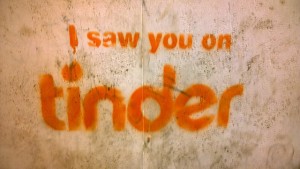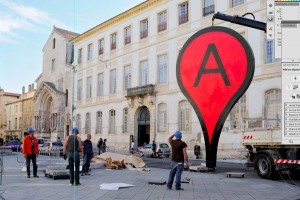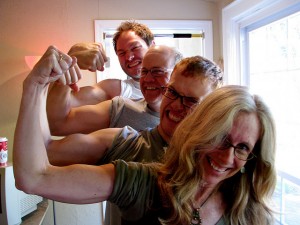There are some things your potential boss should never ask you in a job interview. It’s not okay for you to be asked personal questions that could be used to discriminate against you.
The Alberta Human Rights Act protects you from discrimination based on:
- Race
- Colour
- Gender, Gender Identity, Gender Expression
- Religion
- Ancestry
- Place or origin (where you were born)
- Age (if you are 18 or over)
- Physical or mental disability
- Family status
- Marital status
- Source of income
- Sexual orientation
If you are asked an inappropriate question, it is important to use your judgment. The interviewer might also be making conversation and is not intending to discriminate against you. The problem is that you don’t know if it’s an innocent question or something that will be used to discriminate against you.
You have a few options:
- Only share information that you are comfortable sharing;
- Politely refuse to answer the question or write ‘not applicable’ if you are uncomfortable answering;
- Politely let the employer know the question is inappropriate if they try to make you answer a question that could be used to discriminate against you.
1. “Please attach a picture with your resume.”

It’s a bad sign if the company you’re applying to needs to see a picture before they decide to interview you. A picture won’t reveal if you will be a good employee but it does say a lot about you including your race, colour, gender, and more.
2. “Soooo… do you have girlfriend? How about a boyfriend?”

Your marital status and sexual orientation do not affect your ability to do your job. This is none of the interviewer’s business!
3. “You have a really beautiful name. Where are your parents from?”

A friendly interviewer might be genuinely interested, especially if they think the two of you might have the same background. However, that doesn’t mean it’s okay to ask this question. Your employer does not need to know your ancestry.
4. Pretty much any question that has to do with religion…

Religion is a protected area and is off limits unless it’s a reasonable or justifiable action because the job requires it. An example of a reasonable or justifiable action would be if you are applying for a job to be a teacher at a Catholic school.
5. “I noticed you have an accent. Where were you born?”

This is another question that might come up in conversation but the interviewer should not be asking it! It’s okay to ask if you are legally permitted to work in Canada, but the interviewer shouldn’t ask for additional information that could be used to discriminate.
6. “You look like you’re my daughter’s age. How old are you?”

Interviewers sometimes can’t ask you for your age. If you are under the age of 18, your employer might need to know your age because there are other employment laws they have to follow. If you are over 18, you can let the interviewer know you are over 18 but you do not have to get more specific than that.
7. “You’re about ‘that age’. Are you planning on having kids?”

Some employers might want to know about your family status so they can discriminate against you, especially if they think you might be pregnant or going on parental leave after they hire you. Even if you are planning on having kids soon, this information can’t be used to discriminate against you.
8. “Do you have any family obligations that might interfere with your ability to work?”

If the interviewer wants to know if you already have kids, they might unfairly discriminate against you because they are worried your kids will be more important to you than your job.
9. “This is a pretty physical job. Do you think you’ll be able to handle it because of your age / gender / disability?”

You cannot be discriminated against because of your age, gender or disability, among other protected grounds.
The only exception is when the job requires you to be physically able to perform certain tasks. For example, if you are applying for a job at a bakery, you can be asked if you can lift heavy bags of flour if that’s part of the job.
Exceptions to the Rules!
Usually you cannot be asked personal questions in a job interview but there can sometimes be exceptions to the rules.
Some questions that are usually not okay to ask might be reasonable or justifiable if they are about a bona fide occupational requirement of the job. For example, you can be asked your age if you are applying to work at a job where you serve alcohol.

Or, if you are applying for a job as a firefighter, you may be required to meet certain physical fitness standards.
Last updated: September 2019

All of the materials on this page were funded by the Alberta Human Rights Education and Multiculturalism Fund (HREMF). This project was a result of a research project funded by HREMF. The research report is available here.